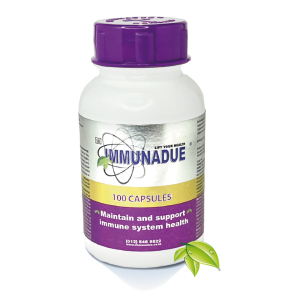- Class of Vitamin:
Water-Soluble:
-
- Vitamin B3, also known as Niacin, is water-soluble. It dissolves in water and is not stored in the body, requiring regular intake.
- How the Body Utilizes Vitamin B3:
Niacin plays essential roles in:
-
- Energy Metabolism: Aids in the conversion of food into energy.
- Cell Communication: Supports the function of enzymes involved in cell signaling.
- DNA Repair and Synthesis: Crucial for the repair and synthesis of DNA.
- The American Heart Association (AHA) Trusted Source states that nicotinic acid (Niacin) limits the production of fats in the liver. This lowers the levels of triglycerides and, as a result, lowers LDL cholesterol.
- Dosage:
-
- RDA: Daily dosage for adults is 14-18mg
- Typical daily intake is between 21 and 31mg for women and men respectively
- Tolerable upper limit: The upper limit is set at 35mg to avoid the skin flush associated with Niacin intake. Higher intakes up to 500mg is possible but see risks blow.
- Symptoms of a Vitamin B3 Shortage:
A deficiency in Vitamin B3 can lead to:
-
- Pellagra: Characterized by diarrhea, dermatitis, dementia, and, if left untreated, death.
- Symptoms of Too Much Vitamin B3:
Excessive Niacin intake, particularly from supplements, can cause:
-
- Niacin Flush: A temporary reddening of the skin, often accompanied by a warm sensation.
- Liver Issues: High doses may lead to liver damage.
- Various Forms of Vitamin B3 Supplements:
Common forms include Niacinamide (nicotinamide) and Nicotinic Acid. Niacinamide is often preferred for avoiding the flushing effect, while Nicotinic Acid may be used for specific therapeutic purposes.
- Various Food Sources of Vitamin B3:
Include the following foods in your diet to ensure adequate Vitamin B3 intake:
-
- Meat: Chicken, turkey, and lean beef.
- Fish: Tuna, salmon, and halibut.
- Legumes: Peanuts, lentils, and beans.
- Whole Grains: Brown rice, barley, and whole wheat.
- Mushrooms: Especially shiitake and portobello.
- How to Take Vitamin B3:
-
- Meal Timing: Take with meals to minimize the risk of stomach upset.
- Time of Day: No specific time restrictions.
- Positive and Negative Interactions:
Positive Interactions:
-
- Vitamin B1 (Thiamine) and B2 (Riboflavin): Work synergistically with B3 in energy metabolism.
Negative Interactions:
-
- Alcohol: Excessive alcohol intake can increase the risk of Niacin toxicity.
- Contraindications and Risks:
-
- Liver Conditions: Individuals with liver issues should use Niacin supplements cautiously.
- Pregnancy and Breastfeeding: Consult healthcare professionals before using high-dose Niacin supplements.
- Always consult a healthcare provider before making significant changes to your Vitamin B3 intake, especially if dealing with existing health conditions or taking medications.






Reviews
There are no reviews yet.